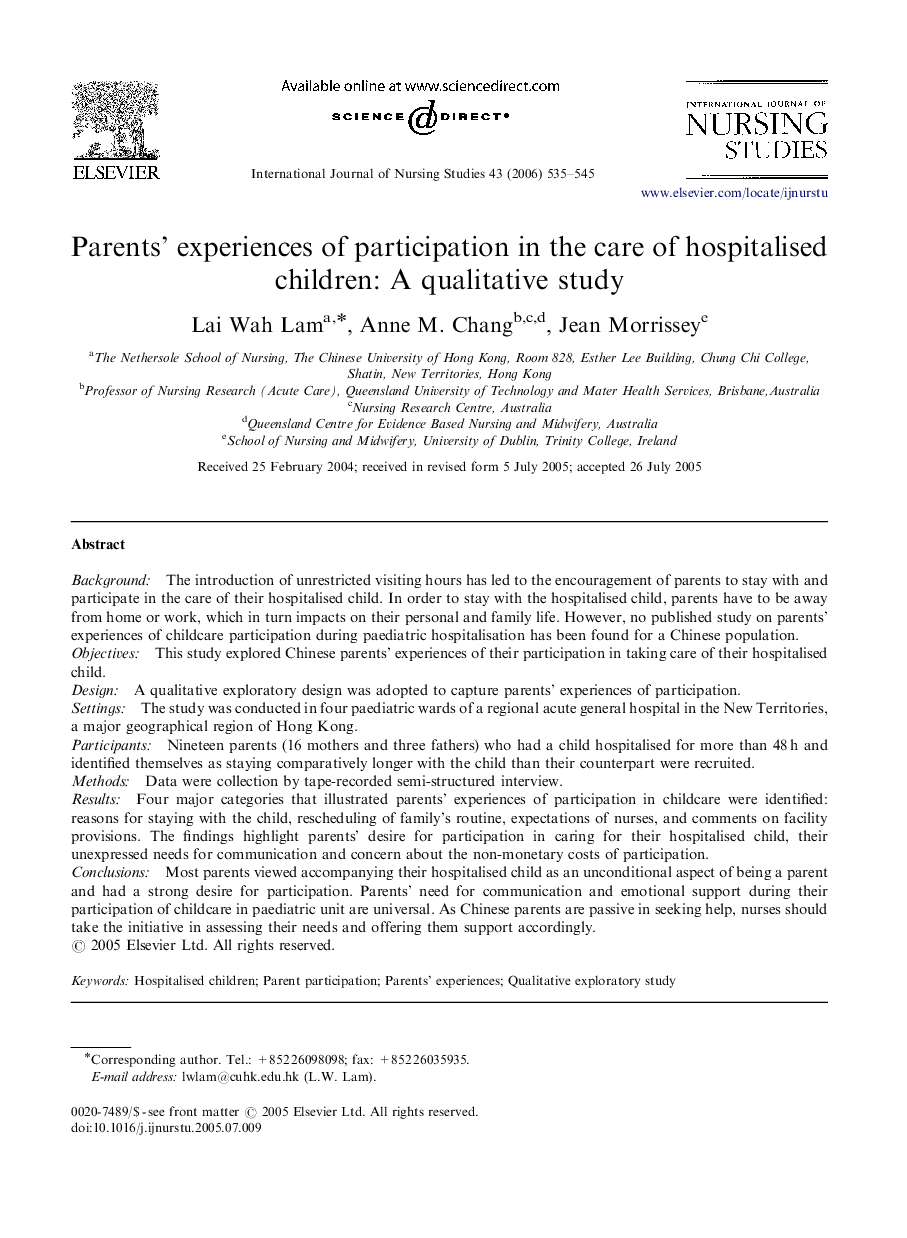| Article ID | Journal | Published Year | Pages | File Type |
|---|---|---|---|---|
| 1077235 | International Journal of Nursing Studies | 2006 | 11 Pages |
BackgroundThe introduction of unrestricted visiting hours has led to the encouragement of parents to stay with and participate in the care of their hospitalised child. In order to stay with the hospitalised child, parents have to be away from home or work, which in turn impacts on their personal and family life. However, no published study on parents’ experiences of childcare participation during paediatric hospitalisation has been found for a Chinese population.ObjectivesThis study explored Chinese parents’ experiences of their participation in taking care of their hospitalised child.DesignA qualitative exploratory design was adopted to capture parents’ experiences of participation.SettingsThe study was conducted in four paediatric wards of a regional acute general hospital in the New Territories, a major geographical region of Hong Kong.ParticipantsNineteen parents (16 mothers and three fathers) who had a child hospitalised for more than 48 h and identified themselves as staying comparatively longer with the child than their counterpart were recruited.MethodsData were collection by tape-recorded semi-structured interview.ResultsFour major categories that illustrated parents’ experiences of participation in childcare were identified: reasons for staying with the child, rescheduling of family's routine, expectations of nurses, and comments on facility provisions. The findings highlight parents’ desire for participation in caring for their hospitalised child, their unexpressed needs for communication and concern about the non-monetary costs of participation.ConclusionsMost parents viewed accompanying their hospitalised child as an unconditional aspect of being a parent and had a strong desire for participation. Parents’ need for communication and emotional support during their participation of childcare in paediatric unit are universal. As Chinese parents are passive in seeking help, nurses should take the initiative in assessing their needs and offering them support accordingly.
